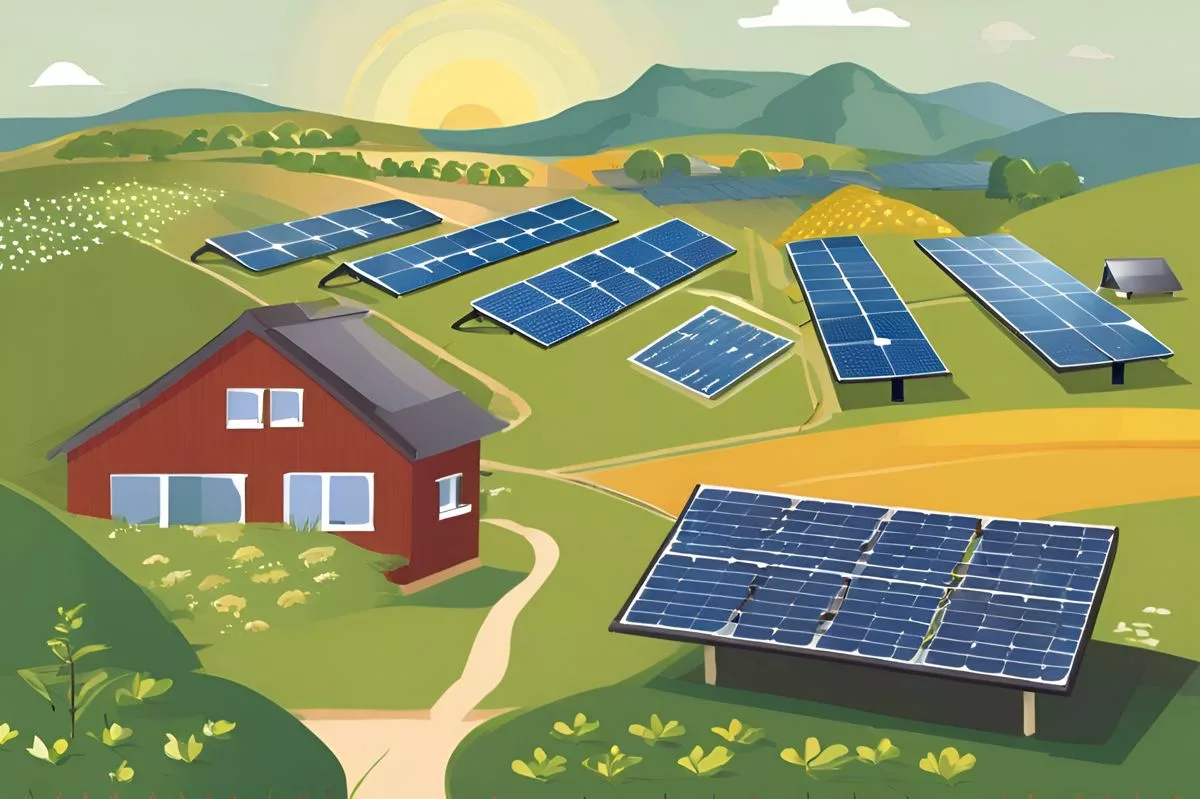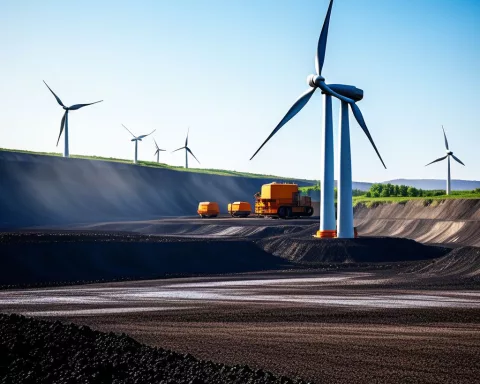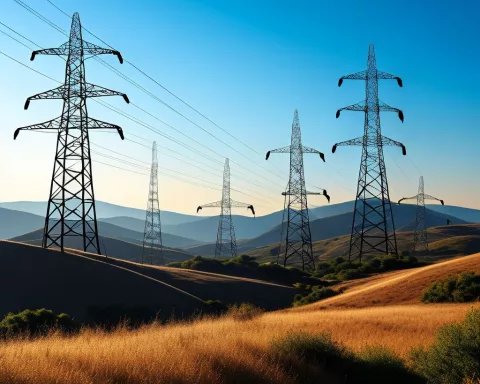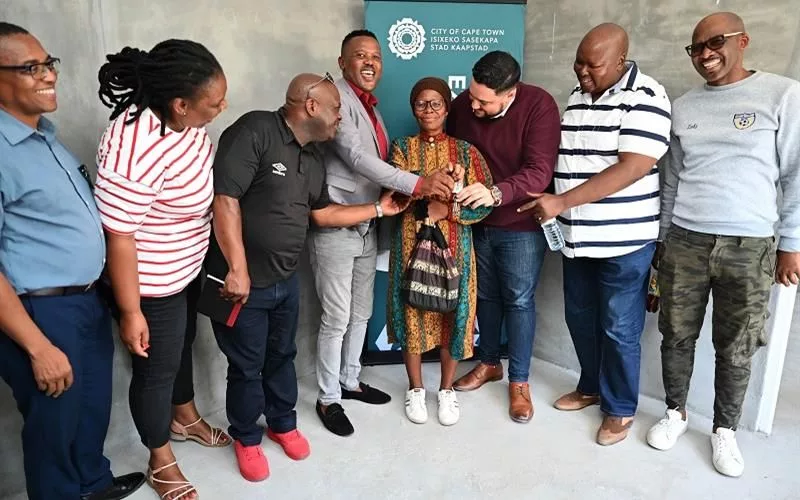South Africa is making significant progress in its energy transition, with a focus on addressing issues such as climate change, energy security, and energy poverty. The Integrated Resource Plan (IRP) outlines a diverse energy portfolio aimed at catering to the country’s escalating power demands while drastically cutting down carbon emissions. South Africa is making efforts to overcome obstacles, such as limited grid capacity, the inconsistent nature of renewable energy, and outdated infrastructure. The ultimate goal is to ensure that “we leave no one behind,” and South Africa’s experience can serve as an example for other African nations.
South Africa’s energy transition is a multifaceted process that addresses diverse issues such as climate change, energy security, and energy poverty. The country has been carefully executing the Integrated Resource Plan (IRP), a bold vision for a diverse energy portfolio catering to the country’s escalating power demands while drastically cutting down carbon emissions. The role of small modular reactors is increasingly recognised due to their potential to provide reliable, clean, and affordable energy.
Transforming Ambitions into Actions
The sixteenth Africa Energy Indaba, under the compelling theme of “Transitioning from aspiration to action,” saw the esteemed Minister of Mineral Resources and Energy, Mr. Gwede Mantashe, taking the spotlight to share South Africa’s progress towards an environmentally-friendly and prosperous future. The Minister’s address reflected the universal aspiration of the Indaba – to reshape the energy sector into a driving force for South Africa’s economic expansion.
At the core of this transformative approach are twin goals: mitigating energy shortages throughout Africa and encouraging a fair transition in energy sources from high carbon-emitting to low. To attain these interrelated aims, South Africa has been carefully executing the Integrated Resource Plan (IRP), a bold vision for a diverse energy portfolio catering to the country’s escalating power demands while drastically cutting down carbon emissions.
Achieving Diversified Energy Mix
A pivotal moment in this progression was the launch of the Independent Power Producer Procurement Programme in 2011. This initiative was designed to decrease the country’s dependence on a handful of primary power sources, trigger a domestic renewable energy sector, and contribute to socio-economic progress and environmentally sustainable growth. As a result of this programme, the 6th administration has secured a total of 5,939 megawatts (MW) from 46 Independent Power Producers (IPPs).
The capacity secured under this programme includes a wide variety of projects, from those already linked to the grid such as Scatec Projects’ 150 MW, to those under construction and preparing for commercial closure. Nevertheless, not all trials have been victorious, with 2,842 MW from 18 IPPs failing to achieve commercial closure due to numerous challenges.
In line with the IRP 2019, the 6th administration has released Requests for Proposals (RFPs) for the procurement of additional capacity. These include 5,000 MW under Bid Window 7 of the Renewable Energy Independent Power Producer Procurement Programme (REIPPPP), 2,000 MW under Bid Window 1 of Gas-to-Power, and 615 MW under Bid Window 2 of Battery Energy Storage.
Overcoming Obstacles for Energy Transition
Despite the significant progress, the road to energy transition is riddled with obstacles, such as limited grid capacity, the inconsistent nature of renewable energy, and the declining Energy Availability Factor (EAF) due to outdated infrastructure. The South African government has responded by investing in baseload energy sources, thereby ensuring affordable and reliable energy for its citizens.
One of the major highlights in this effort is the assignment of the Council for Geoscience (CGS) to run the Carbon Capture, Utilisation, and Storage (CCUS) project in the Mpumalanga Province. As the initial phase of research nears completion, the government is optimistic that it will help transition South Africa’s economy from high to low carbon dioxide emissions.
Coal, thanks to the application of clean coal technologies, has been recognised as a crucial part of South Africa’s energy blend. The World Bank’s commitment to support this research signifies the global significance of transitioning from coal.
International Efforts for Energy Security
In addition to domestic efforts, South Africa has made considerable headway in international energy politics. iGas, a subsidiary of the Central Energy Fund (CEF), has acquired an additional 40% ownership of the ROMPCO pipeline, marking a significant milestone in regional energy infrastructure. This acquisition has resulted in South Africa and Mozambique jointly owning 80% of the pipeline, thereby boosting energy security in the region.
Despite these advancements, concerns linger over the current and future gas supply in the South African market due to commercial disputes and the inevitable decrease of natural gas reserves. To tackle these issues, the government has formed a task team in partnership with the Department of Trade, Industry, and Competition (DTIC) to develop a joint strategy.
Further compensation for the negative impacts of these challenges includes negotiations with the Mozambican Government, resulting in a memorandum of understanding covering trade on electrons from the Mpandankuwa project and trade on gas molecules from newly discovered gas fields and the Matola LNG hub.
Enhancing Energy Security and Diversification
In the face of challenges, South Africa continues to make considerable progress in the upstream petroleum industry, with significant gas discoveries by TotalEnergies in the Outeniqua Basin and Kinetiko Energy in Amersfoort, Mpumalanga. These discoveries are strategically positioned to enhance South Africa’s energy security and propel its drive for industrialisation, growth, and development.
South Africa has also started the procurement process for 2,500 MW of nuclear capacity, signalling a significant leap towards diversifying its energy mix. The role of small modular reactors is increasingly recognised due to their potential to provide reliable, clean, and affordable energy.
In conclusion, South Africa’s energy transition is a multifaceted process that addresses diverse issues such as climate change, energy security, and energy poverty. As Minister Mantashe perfectly summarised at the Africa Energy Indaba, the ultimate goal is to ensure that “we leave no one behind.” South Africa’s experience can serve as a guiding light for other African nations embarking on similar energy transitions – illustrating the challenges, but also the immense potential, of a sustainable and prosperous future.
What is South Africa’s focus in its energy transition?
South Africa’s energy transition aims to address issues such as climate change, energy security, and energy poverty.
What is the Integrated Resource Plan (IRP)?
The Integrated Resource Plan (IRP) is a bold vision for a diverse energy portfolio aimed at catering to South Africa’s escalating power demands while drastically cutting down carbon emissions.
What is the Independent Power Producer Procurement Programme?
The Independent Power Producer Procurement Programme is an initiative designed to decrease South Africa’s dependence on a handful of primary power sources, trigger a domestic renewable energy sector, and contribute to socio-economic progress and environmentally sustainable growth.
What are some obstacles that South Africa faces in its energy transition?
South Africa faces obstacles such as limited grid capacity, the inconsistent nature of renewable energy, and outdated infrastructure.
How is South Africa enhancing its energy security and diversification?
South Africa is enhancing its energy security and diversification by making significant progress in the upstream petroleum industry and starting the procurement process for 2,500 MW of nuclear capacity.
How can South Africa’s experience serve as an example for other African nations?
South Africa’s experience can serve as a guiding light for other African nations embarking on similar energy transitions, illustrating the challenges, but also the immense potential, of a sustainable and prosperous future.












